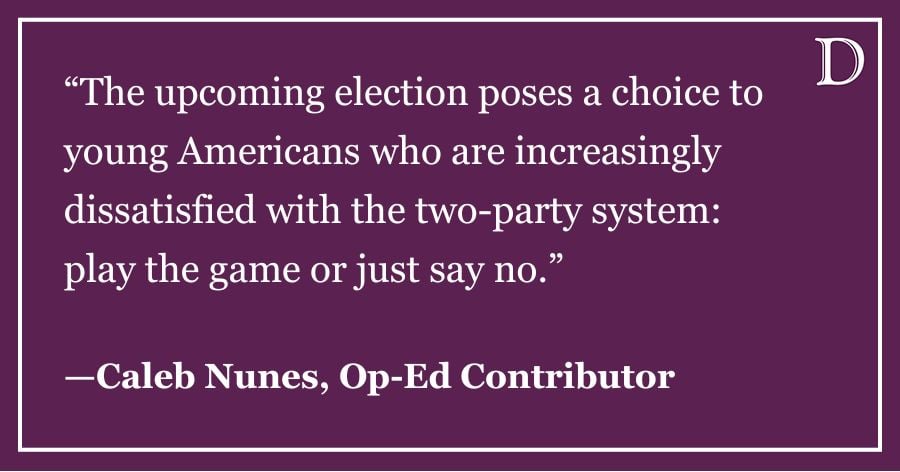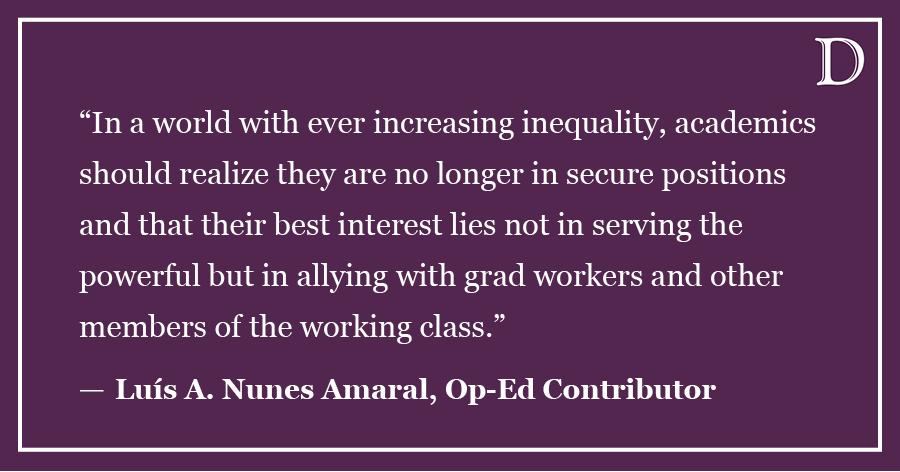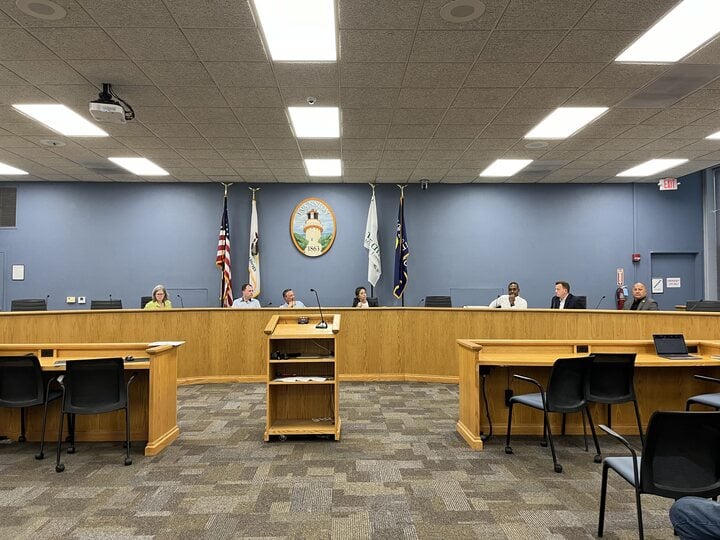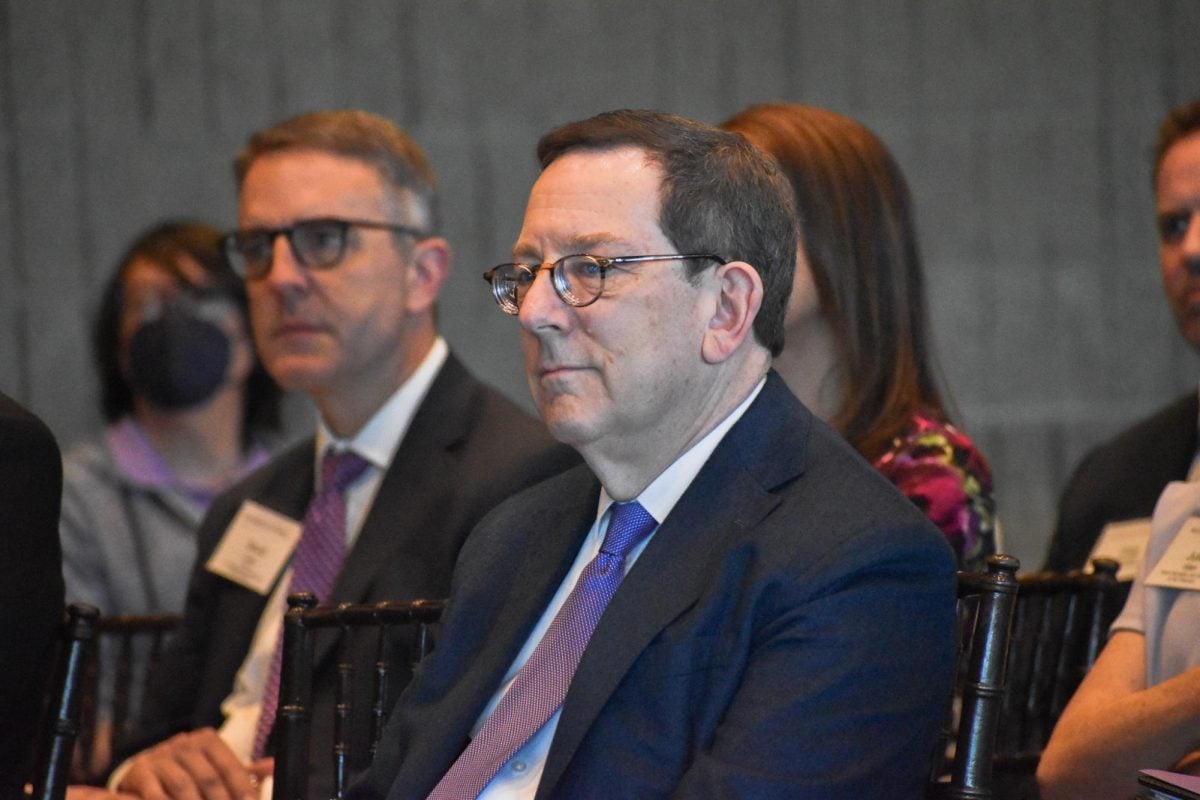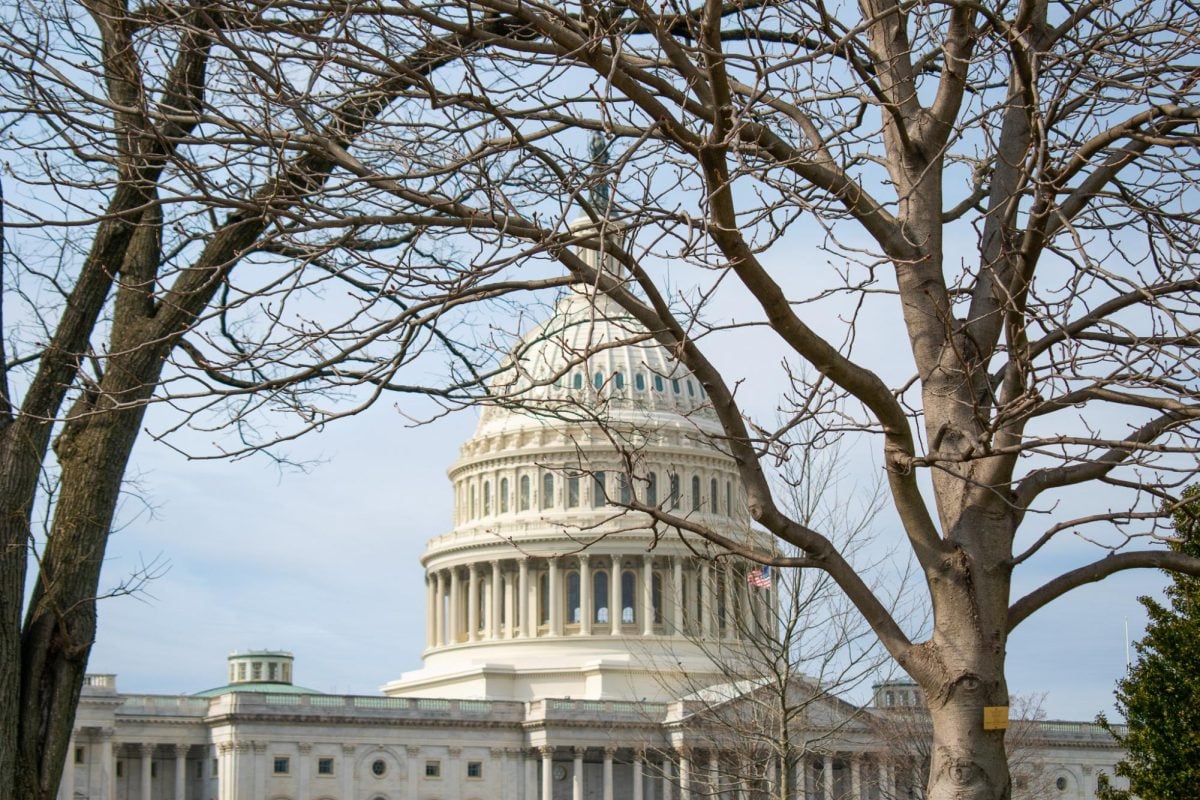This past weekend, as I was walking through Midtown Manhattan, the National Debt Clock, a billboard-sized running total display of the United States gross national debt, caught my attention. $33.7 trillion is a truly incomprehensible figure, and we are accelerating in the wrong direction.
In late September, the U.S. was barreling towards a potential government shutdown, induced by Congress’ inability to come to a bipartisan compromise in drafting 12 appropriations bills that needed to pass through a divided legislative branch and be approved by President Joe Biden.
In light of recent events, namely Rep. Kevin McCarthy’s ousting as Speaker of the House, the outbreak of war in the Middle East and the 2023 elections, the American people seem to have forgotten that a potential government shutdown is imminent. The government is currently operating on a continuing resolution, a mechanism under which temporary spending bills fund the government until Congress and the president approve final appropriations.
The average American’s disregard for this issue has become all too common in recent years. People should be concerned that our elected officials routinely engage in political brinkmanship before passing a continuing resolution and eventually a federal budget that fails to address the root causes of our surging debt.
While a lot of political debate involving hot-button social and geopolitical issues takes place on Northwestern’s campus, little, if any, attention seems to be given to issues of economic policy. The potential impact of a government shutdown on a private institution like NU would be minimal in the near-term, but as members of the broader community, we should all be concerned.
It will impact us all in some ways: travel would become more difficult before the holiday rush, international students may face visa processing delays, members of the Evanston community may not be able to access support programs and, overall uncertainty and anxiety would settle in.
News organizations of different political leanings are inevitably going to write view-generating articles, some arguing a government shutdown would have catastrophic economic consequences and others saying there would be minimal economic impact, in order to stoke fear and political tension. They should instead be asking: when will Americans collectively acknowledge our precarious situation?
As economist Paul Krugman has emphasized, there is no need or expectation for the federal government to pay off its debt. The finances of the government and those of an American household are incomparable, because governments “must service their debts – pay interest and repay principal when bonds come due – but they don’t necessarily have to pay them off; they can issue new bonds to pay principal on old bonds and even borrow to pay interest as long as overall debt doesn’t rise too much faster than revenue.”
It would be extraordinary for any government to try and pay down such a large debt figure. That being said, with the path we are on, annualized interest payments on government debt are spiraling out of control and consuming a greater share of the federal budget. How much more does the debt burden have to increase before rational decision makers collectively take decisive action?
I am not denying that the government should borrow to fuel increased spending when needed, like in the case of a war, a pandemic or an economic recession. But, the norm should not be borrowing to fuel basic, ongoing obligations. This is an unsustainable path and every additional dollar spent on interest payments is one less that could have been returned to the American taxpayer or used to make progress on crucial issues.
Texas Republican Rep. Chip Roy recently explained how a “laddered” continuing resolution could represent a move in the right direction and ensure spending levels remain at those of the previous year.
“The reason is trying to force action in this time, right?”, Roy told Fox News. “If we just kick the can down the road and we do a CR – pick a number, March 31, or something – what the hell do you think these guys are going to do? They’re going to sit around and not do stuff. And they’ll wait until March 20 and try to do pressure politics (again).”
This new, rational approach, and an acknowledgement of reality is in stark contrast to that of political extremists on both sides who have weaponized the debt ceiling and simply insist on runaway spending or achieving unrealistic concessions.
While Senate Majority Leader Chuck Schumer said he “earnestly hope(s) we can reach an agreement sooner rather than later,” his assertion that House Republicans need to “learn from the fiasco of a month ago” and Democrats are non-negotiable on “hard-right proposals, hard-right slash and cuts, (and) hard-right poison pills” clearly undercuts his hope that an agreement can be made.
An agreement is typically a situation where both sides acknowledge reality and negotiate a mutually desirable and attainable outcome.
Regardless of how the week plays out, politicians on both sides of the aisle, Wall Street, the average American and many other stakeholders are inevitably going to have mixed reactions. No one wins a government shutdown. The best we can collectively hope for this week should not be yet another continuing resolution; this would simply be putting a Band-Aid on the issue. With a single representative able to initiate a motion to vacate the office of the Speaker, newly elected Speaker Mike Johnson will be on the hot seat. It will be interesting to see just how far each side is willing to go to be triumphant.
Griffin Alt is a Weinberg junior. He can be contacted at [email protected]. If you would like to respond publicly to this op-ed, send a Letter to the Editor to [email protected]. The views expressed in this piece do not necessarily reflect the views of all staff members of The Daily Northwestern.


